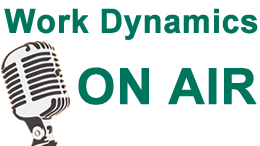News
IMAGINE IF TEAM BUILDING ACTUALLY WORKED
By Frik Nortje, Consulting Psychologist: Work Dynamics

While huge budgets are spent on team building initiatives, few companies report any increase in the “execution capacity” of whichever team was “sponsored” for such interventions.
During the 90’s team development interventions was rife. This is also where things went wrong when “Kamp Staaldraad” was seen as a “must do”. Today we are still battling the legacy of fly-by-night service providers who may have started with good intentions of improving the functioning of teams or work groups but failed miserably in the long run.
With all the money invested in these interventions why has it not provided the return on investments promised? Opinions are many and varied, but through our own informal desk research, we were able to identify the potential reasons for failure in this category of Organisational Development:
A one-size-fits-all approach: More often than not consultants will propose an intervention believed to be the be-all-end-all of team building interventions. They have preconceived ideas as to what the team issues are and will have a standard programme to address all potential issues.
Treating the symptoms and not the problem: This seems to be the major reason for the poor results rendered by team buildings - solutions are offered without performing a proper “examination”. Organisational behaviour is very complex. The perceived issues are seldom the root cause but merely the symptoms thereof (the image of “treating a patient for a headache but missing the brain tumour” comes to mind). One needs to “peel away” the layers of symptoms in order to get to “the real” issues.
The emphasis is on the “retreat” and not the issues at hand: Yes, people want to have fun as part of a “team building”. Unfortunately some interventions are so much fun that the focus shifts from the issues. Regardless, people may get so enticed by the congeniality of the environment that, at least for the duration of the intervention, they forget about the real issues hence the feeling of having achieved a harmonious state of functioning. This leads to the next point: what happens after the two or three days out of the office??
No after-care: Let’s assume that the cause of the problem was identified and addressed during the team building. What happens after intervention? The reality is that people will regress to “old ways of doing things” once they hit the piles of work back at the office. Why? Because they are used to how things are and cannot afford to invest any energy in changing things when the work at hand requires all the energy. Teams need to gradually build their strength (with the necessary support) in order to effectively change deep-rooted systems.
Progress is not measured: The fuzzy euphoria of “we’re a great team now” will not suffice. Real progress should be measurable in the work environment. This is much easier said than done (but not impossible). “Yard-sticks” should be used to see whether an intervention had the desired effect. Only then will an organisation be able to confidently say that the intervention was worth their while (and money). This does not imply administering a ten-question questionnaire at the venue where the team building took place (when everyone is still on a “high”). It implies a pre and post measurement of key areas a few months later.
What do the executives say about team buildings? We interviewed a few of our clients and this is what some of them had to say:
“Despite the fact that we are still unsophisticated in terms of team building, we do acknowledge its value and are therefore budgeting for it. We are open to new innovative approaches.”
“We don’t believe in ‘retreats’ anymore. We do acknowledge the importance of team buildings but we have it at our offices. The format is somewhat different from the ‘traditional’ team buildings: we do a lot of psychometric assessments and tend to get together to discuss the results in order to facilitate a better understanding of one another. We focus on the practical dynamics within the work environment as opposed to team building activities.”
“We do value team buildings but not the ‘artificial’ activities which force people to work together. Once we went rowing on the Orange River. I paired people in boats who I knew did not get along well. We also had a ‘braai” and just talked. This was a very positive experience”
Team building is an important element of Organisational Development. Imagine if it actually worked.





























